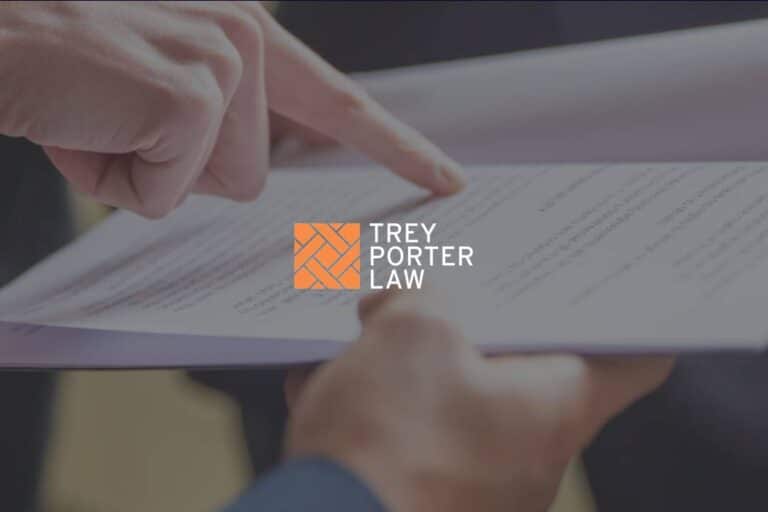WHAT CRIMES CAN BE EXPUNGED IN TEXAS?
Criminal arrests, misdemeanors, felonies, intoxication offenses, drug cases, and white collar crimes can be expunged in Texas. There are hundreds of criminal offenses in Texas law and even petty charges can result in a devastating permanent record.
Expungement is a powerful legal tool that deletes all records of a criminal case in Texas. It allows a person to move forward and deny the charge ever happened – an enormous advantage for students, young professionals, and anyone looking to move beyond their past!
Those wishing to delete their criminal record in Texas should carefully note the following eligibility requirements as not everyone qualifies for expungement.
WHO QUALIFIES FOR EXPUNGEMENT IN TEXAS?
In most cases, individuals with criminal charges dismissed without probation qualify for expungement in Texas.
Additionally, those who resolve their cases by Deferred Disposition, pretrial diversion, or certain specialty court programs (like Veterans Treatment Court) also qualify to expunge their charges.
As outlined in the Texas State Law Library, expunction eligibility is ultimately complex and fact specific. As a result, the experienced Texas expungement lawyers at Trey Porter Law conduct a comprehensive legal analysis to identify critical expunction eligibility factors.
TOP EXPUNGEMENT ELIGIBILITY FACTORS IN TEXAS
The Texas expungement law is found in chapter 55 of the Code of Criminal Procedure. Texas courts have repeatedly analyzed this long and complex law, granting expunctions in many different scenarios. Here are top factors allowing for expungement of criminal charges in Texas:
- The charge is dismissed without probation.
- The defendant is acquitted (found “not guilty”) at trial.
- The charge is dismissed by Deferred Disposition.
- The charge is dismissed after pretrial diversion or specialty court program (such as a Veterans Treatment Court).
- The arrest did not result in charges and the Statute of Limitations has expired.
- The defendant is convicted, but later pardoned by the Governor.
- The defendant is convicted by trial court, but later acquitted on appeal.
Texans should expunge qualifying criminal charges as soon as possible to avoid the problematic consequences of a criminal record in Texas.
WHAT IS THE NEW TEXAS EXPUNCTION LAW IN 2025?
Effective January 1, 2025, Texas House Bill 4504 brings significant changes to the state’s Code of Criminal Procedure, offering positive advancements for both law enforcement and Texans facing criminal charges. Here are the top 3 takeaways from Texas HB 4504:
- Faster Justice: This bill aims to make Texas court processes more efficient, ensuring cases move forward smoothly for everyone involved.
- Fairer Police: The bill increases transparency and accountability for law enforcement, building trust and ensuring fair treatment.
- A Fresh Start: This bill makes it easier for some people to clear their criminal records, opening doors to new opportunities.
WHAT QUALIFIES FOR EXPUNGEMENT IN TEXAS?
Most criminal charges qualify for expungement if they are dismissed without probation and do not result in a final conviction. If they meet this criteria, the following crimes can be expunged in Texas:
- Driving While Intoxicated (DWI)
- DUI Minor under 21
- Driving While Intoxicated – Third Offense (DWI-3rd)
- Public Intoxication
- Open Container
- Assault
- Possession of a Controlled Substance
- Possession of Marijuana
- Possession of Drug Paraphernalia
- Theft
- Unlawful Carrying of a Weapon (Firearm)
- Resisting Arrest
- Evading Arrest
- Racing on Highway
- Reckless Driving
These are only a few examples of numerous Texas crimes that qualify for expungement. Those with additional Expunction eligibility questions should consult an experienced Texas criminal defense attorney for further insight.
- Can a DWI be expunged in Texas? Yes, DWI charges can be expunged in Texas if they are dismissed with no probation. DWI charges are also expungement eligible if they are dismissed by pretrial diversion, specialty court program, or if the Defendant is acquitted at trial.
- Can a felony drug charge be expunged in Texas? Yes, felony drug charges can be expunged in Texas if they are dismissed without probation. They are also expungement eligible if they are resolved by pretrial diversion or specialty court program or if the Defendant is acquitted at trial.
WHAT CASES CANNOT BE EXPUNGED IN TEXAS?
Probation cases and charges resulting in a conviction cannot be expunged in Texas. Additionally, certain serious offenses with no Statute of Limitations, are also ineligible for expungement depending on the circumstances they were dismissed. These offenses can rarely be expunged in Texas, even if the charges were dismissed:
-
- Murder
- Manslaughter
- Sexual Assault of a Child
- Aggravated Sexual Assault of a Child
- Continuous Sexual Abuse of Young Child or Disabled Individual
- Indecency with a Child
- An offense involving leaving the scene of a collision if resulting in the death of a person
- Trafficking of Persons
- Continuous Trafficking of Persons
- Compelling Prostitution
- What is the Statute of Limitations on expungement in Texas? The Statute of Limitations on expungement in Texas is related to the specific criminal charge. Misdemeanor crimes typically range 1-2 years, while felony limitations periods are often 3 years or more. Most expungements require expiration of the Statute of Limitations before the Expunction can proceed.
- Can you expunge a misdemeanor if you plead guilty in Texas? No, misdemeanor convictions are ineligible for Expunction in Texas. This is why Texas Defendants should do everything possible to avoid the devastating consequences of a criminal conviction.
WHAT ARE THE REQUIREMENTS FOR EXPUNGEMENT IN TEXAS?
As a primary requirement, a case must first be eligible for expungement, which usually entails those cases that were dismissed without probation or that were resolved by Deferred Disposition or pretrial diversion program.
An individual must then file a notarized Petition for Expunction in the proper court that complies with Chapter 55 of the Texas Code of Criminal Procedure.
- Can you expunge a dismissed case in Texas? Yes, charges that are dismissed with no probation or deferred adjudication are eligible for expungement once the Statute of Limitations has expired. Charges that are resolved by pretrial diversion are immediately eligible for expungement.
- How long after a felony can you get it expunged in Texas? A person can immediately expunge a felony following an acquittal or pretrial diversion. Felonies dismissed without probation require a 3-year waiting period and some cases also require expiration of the Statute of Limitations for the offense.
HOW LONG DOES A CRIMINAL RECORD LAST IN TEXAS?
Criminal records are permanent in Texas – they never go away or disappear automatically! This is a frequent misconception.
The only way to clear a criminal record in Texas is by pursuing an Expunction.
- Does your criminal record clear after 7 in Texas? No. Criminal records do not automatically clear after 7 years in Texas. Even dismissed charges remain on criminal records permanently unless they are expunged. The only way to clear a criminal record in Texas is by expungement.
- Do you have to disclose expunged records in Texas? No, a person does not have to disclose expunged records, including on job applications or residential leases in Texas. A person can legally deny an expunged case ever happened.
This is a huge advantage to any individual and a reason why expunction should be sought as soon as the case is eligible.
DO ARRESTS SHOW UP ON BACKGROUND CHECKS IN TEXAS?
Yes, arrests appear on criminal records in Texas even when they result in dismissed charges. The only way to remove an eligible arrest from a criminal record in Texas is by expungement.
- How long does a DWI stay on your background check in Texas? DWI cases stay permanently on Texas background checks even when they are dismissed. They do not go away automatically or fall off criminal records after 7 years in Texas. The only way to remove an eligible DWI from a background check in Texas is by expunging the offense.
- How long does a misdemeanor stay on your record in Texas? Permanently, even when dismissed. Misdemeanor records (including common class C misdemeanor offenses) do not ever automatically disappear from a person’s criminal record. The only way to delete an eligible misdemeanor record is by expungement in Texas.
TEXAS EXPUNGEMENT LAWYERS
Clear your criminal record today. Find out if your Texas record can be expunged. Trey Porter Law is a leading Texas criminal defense firm with a reputation for winning cases and expunging records. We’ve successfully expunged Texas criminal records for countless clients. Fast, but thorough, we handle a wide range of expunction eligible offenses, including misdemeanors, felonies, DWIs, assaults, and drug possession charges. Don’t let a past mistake hold you back, Contact Trey Porter Law today for a free consultation.













